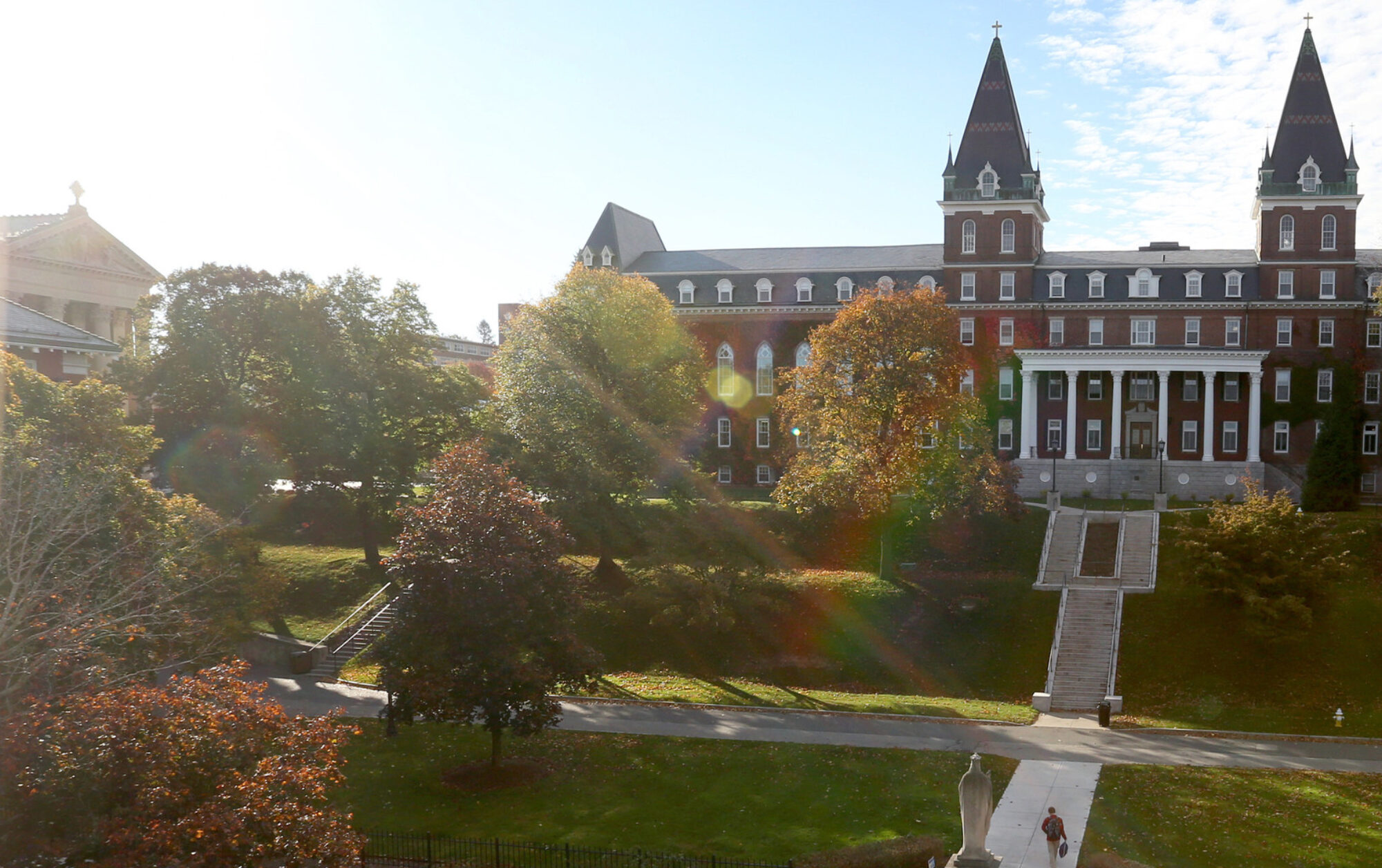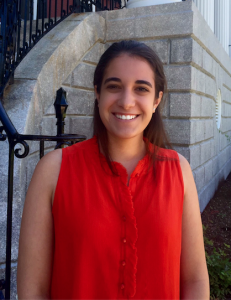Double major=more work. Right? Actually, no, wrong.
As a tour guide, one of the most common question I get is “what is it like to double major? Is it hard?” I actually kind of chuckle every time someone asks me this because it reminds me how inaccurately double majoring is viewed.
Let’s break it down. Students at Holy Cross take 32 courses (each course is one credit) in order to graduate. A typical major is anywhere between 10 and 14 courses. So, if you have ONE major, you take 10-14 courses for that major, and the rest of your credits are filled with other classes—whether it be a minor, a concentration, or just a bunch of random classes!
If you have TWO majors, then you take 10-14 courses for one of your majors, AND another 10-14 courses for your other major. It’s really that simple. You do not need to take more than 32 courses in order to double major. The only difference is, you are taking more courses geared towards one major.
In regards to school work, you don’t have MORE work just because you have two majors. Often, majors require a higher level course in order to complete the major, whether it is a 300 level seminar, or a 400 level independent study course. This means that with two majors, you would have to take TWO of these higher level courses, one for each major.
SO, having two majors doesn’t necessarily mean more work. It means you have another field of study you are interested in addition to your other major. In terms of schoolwork, you would be taking one or two more higher level courses that you wouldn’t necessarily have to take if you just had one major. So when it comes down to it, a double major is really an addition of one or two more higher level courses to your class schedule.
After reading all of that you’re problem thinking why double major then? I’ll admit, double majoring is not for everyone. Some students know they only want to student one thing and one thing only. With me, I have multiple interests when it comes to academics. In fact, I wish I could triple or quadruple major but that’s just not an option. Students typically double majoring when they have more than one interest and want to study more than one thing.
On a more personal note, one of my favorite things about double majoring is seeing how my two areas of study, art history and sociology, overlap. And surprisingly, they do. When you double major, you’ll find a lot of interconnectedness within your courses, which help you grasp a better understanding as to how the world works. Another great aspect of double majoring is that you have two advisors, one from each major department. This is a great feature because you will have multiple amazing faculty resources!
In conclusion, double majoring only means you take courses geared to two specific academic areas instead of just one. It doesn’t mean more work and it doesn’t mean harder courses. In fact, I actually encourage underclassmen to take a wide variety of courses their first and second years to see if they find multiple disciplines they’re interested in and can double major in!
If you’d like to learn more about double majoring or any of our academic programs in general, visit our website at: https://www.holycross.edu/liberal-arts-and-jesuit-education/majors-minors-concentrations


